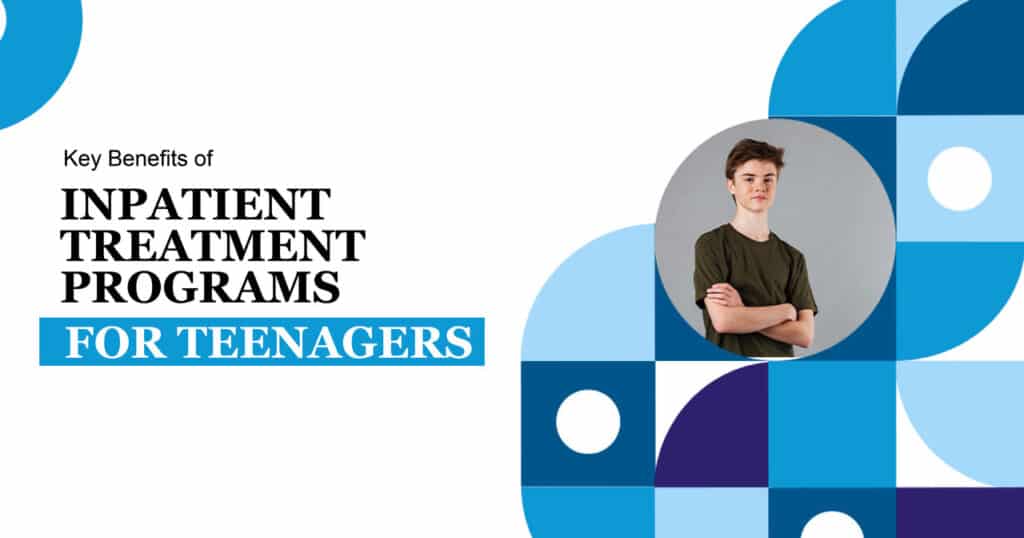Introduction to Inpatient Treatment Programs
Adolescence is a pivotal chapter in life, brimming with potential but also challenges that can sometimes spiral into serious mental health issues. When outpatient treatments or home interventions are ineffective, inpatient treatment programs become a beacon of hope. These programs are about stabilizing acute conditions and laying a robust foundation for lifelong resilience and well-being. This comprehensive exploration will dive into the key benefits of inpatient treatment programs for teenagers, shedding light on how these environments are uniquely poised to catalyze positive change in young lives.
The Supportive Structure of Inpatient Programs
Inpatient treatment programs for teenagers are designed to immerse patients in a healing environment where every aspect of the day is tailored toward recovery.
Consistent Routine and Supervision
- Structured Days: Teenagers benefit from a predictable daily schedule that reduces stress and anxiety and provides a sense of security and stability.
- 24/7 Care: Continuous supervision ensures that teens are safe at all times, which is especially crucial for those at risk of self-harm or severe depressive episodes.
Intensive Therapy Options
- Diverse Therapeutic Approaches: From individual counseling and group sessions to family therapy, inpatient programs offer a blend of therapies that are often more intensive and frequent than those available in outpatient settings.
- Specialized Treatments: Many programs offer specialized therapeutic modalities, such as Dialectical Behavior Therapy (DBT), Dialectical Behavior Therapy (DBT), and mindfulness practices tailored to adolescent needs.
Tailored Treatment and Personalized Care
One size does not fit all when it comes to treating mental health disorders in teenagers. Inpatient programs excel in providing personalized care that addresses the multifaceted nature of each individual’s condition.
Comprehensive Assessment and Customization
- Initial Evaluations: Upon admission, a thorough assessment is conducted to understand the teen’s medical history, symptoms, and specific needs.
- Customized Treatment Plans: Based on the initial assessments, a personalized treatment plan is developed and regularly updated according to the teen’s progress and evolving needs.
Multi-disciplinary Team Approach
- Collaborative Care: Psychiatrists, psychologists, counselors, and sometimes even educational consultants work together to provide holistic care.
- Consistent Feedback and Adjustment: The treatment approach is continuously refined, ensuring that it adapts to the teen’s changing needs and maximizes the potential for recovery.
Building Life Skills and Coping Mechanisms
Inpatient treatment programs do more than treat symptoms; they equip teenagers with essential life skills and coping mechanisms that serve them well beyond the confines of the program.
Skill Development
- Emotional Regulation: Teens learn how to manage their emotions through techniques taught in therapies like DBT.
- Social Skills: Group interactions within the program enhance communication skills, empathy, and social interaction.
Independence and Responsibility
- Self-care Skills: Teenagers are encouraged to take part in their own wellness journey, learning about medication management, nutrition, and personal hygiene.
- Decision Making: The supportive environment fosters a safe space for teens to make decisions and learn from them, bolstering their confidence and independence.
The Long-term Impact of Early Intervention
Addressing mental health issues during the formative years can drastically alter the trajectory of a teenager’s life, making early and intensive intervention critical.
Preventing Progression
- Early Treatment: Inpatient programs can prevent the progression of mental health issues into more severe disorders or co-morbid conditions, setting a positive path forward.
- Reduction in Future Healthcare Needs: Early treatment can reduce the need for more intensive healthcare plan services later in life.
Enhancing Quality of Life
- Academic and Social Success: Teens are better equipped to succeed academically and socially with improved mental health.
- Healthy Adult Life: The coping skills and resilience built during treatment often translate into healthier coping mechanisms in adulthood.
FAQs: Your Questions Answered
Q1: How do I know if inpatient treatment is the right choice for my teenager?
A: Inpatient treatment is considered when outpatient treatments have not been effective or the teen’s safety is at risk due to their cognitive health condition.
Q2: What can my teen bring to an inpatient program?
A: Most programs have specific guidelines about what items are allowed. Generally, items that are comforting but do not pose any risk (like certain personal belongings) are permitted.
Q3: How can I stay involved in my teen’s treatment?
A: Family involvement is crucial. Most programs encourage regular family therapy sessions and provide updates on the teen’s progress.
Conclusion: A Path to Renewal
Inpatient treatment programs offer a comprehensive, structured, and supportive environment that is essential for teenagers struggling with mental health disorders. These programs aim to alleviate symptoms and equip young individuals with the tools they need for a healthier future. As more families and healthcare providers recognize the benefits of such tailored, intensive care, the hope for successful management and recovery from adolescent mental health conditions continues to grow.




